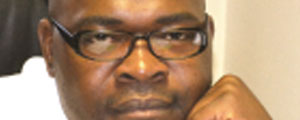
The question of how Africa can extricate its people from the curse of poverty has been addressed from numerous dimensions.
Develop Me with Tapiwa Gomo
The most common ones of these dimensions are technocratic approaches which propose that with proper policies, systems, programmes and well defined projects in place, it is easy to take people out of poverty.
This narrative has however dominates the domain of development thinking as given and beyond questioning thereby masking and yet encapsulating the assumption that the lack of development in Africa is actually a progeny of lack of policies, systems, programmes and political will by African leadership.
Superficially, it does sound politically correct to conclude that African governments lack the ability to plan and execute ideas for the benefit of their people. But at the root of this endemic assumption lies numerous questions on who defines development, whose systems of planning and project implementation is being imposed on them as ideal and who is being favoured by such systems. In summary, such analysis evades the question of power which underlies the universal project of development. To what extent does an African state able to define its own development course without being forced to conform to global narratives? Who controls the global systems?
At the root of African poverty is lack of state power to decide independently what is good for its people without being pressured to think and behave in a certain way. Such a line of thinking may not be an easy one to swallow for mindsets that have been oriented to think of African leaders as dictators and unorganized lot. It is the same mindset that glorifies the US for bombing Iraq in the name of democracy while condemning its leaders for using similar tactics against its people.
History is replete with rich accounts of how freedom is a precursor of development and that freedom is not donated but a result of struggle. The more we submit to a system which is not scripted by us the more our thinking is oppressed and controlled by those who scripted the system. Technocracy within such a system can only achieve as much as the system allows which means we cannot succeed beyond those who scripted it. We may develop among the best economic blueprints but if they lack a certain arrogance to challenge conventional practice, they will just remain feeble blueprints which are good but useless.
The Industrial Revolution of the 17th century shows how anarchy broke the oppressive shackles of traditionalism to usher a new way of doing things which gave rise to the European and American economic boom. When the uprising occurred, it was seen as undermining traditional system of governance such as the monarch and religious system.
- Chamisa under fire over US$120K donation
- Mavhunga puts DeMbare into Chibuku quarterfinals
- Pension funds bet on Cabora Bassa oilfields
- Councils defy govt fire tender directive
Keep Reading
We also learnt that independence for most African countries was not donated but an outcome of struggle. The organisations that spearheaded the struggle were also called names such as terrorist groups. The recent rise of China to global dominance teaches us about the essence of freedom of a nation to craft its pathway to development, antithetical to the dominant western narratives.
The Chinese story, unpopular as it may, offers an interestingly different dimension. While the dominant narrative is about the freedom of the people in an environment where states are oppressed by global systems, China chose to extricate state freedom from global systems, before granting freedom to the people. For that China has once again been called names but out of that they have freed their people from poverty much faster than any other country in recent history. Analysts are already predicting that with easing of autocracy in China, there is no doubt that it will be the biggest democracy in the world. And should that happen, there is a high possibility that theirs will be a responsible democracy built on ethos of nation building.
For Africa, however, the answer does not lie in imitating the west or the Chinese though few notes can surely be borrowed. It lies in an African solution which begins with collaborative efforts among African countries. The answer lies in retaining state power to decide to be different and choose to do things differently. It does not lie in indigenization or JUICE but a shift of mindset from one that thinks owning everything or flooding the country with foreign investors is national development to one that believes in maximum utilization of available resources for national development. Most of the investors, whether Chinese or Western in Africa are doing it for their countries and any benefits accrued to Africa are unintended. The answer lies in an Africa that has use for its raw materials not one that has been transmogrified into a supplier of resources. Achieving this is not going to be a donation but a big struggle. It is a struggle that challenges the global governance system. It is a struggle that is resisted before it can begin and yet it must begin.











